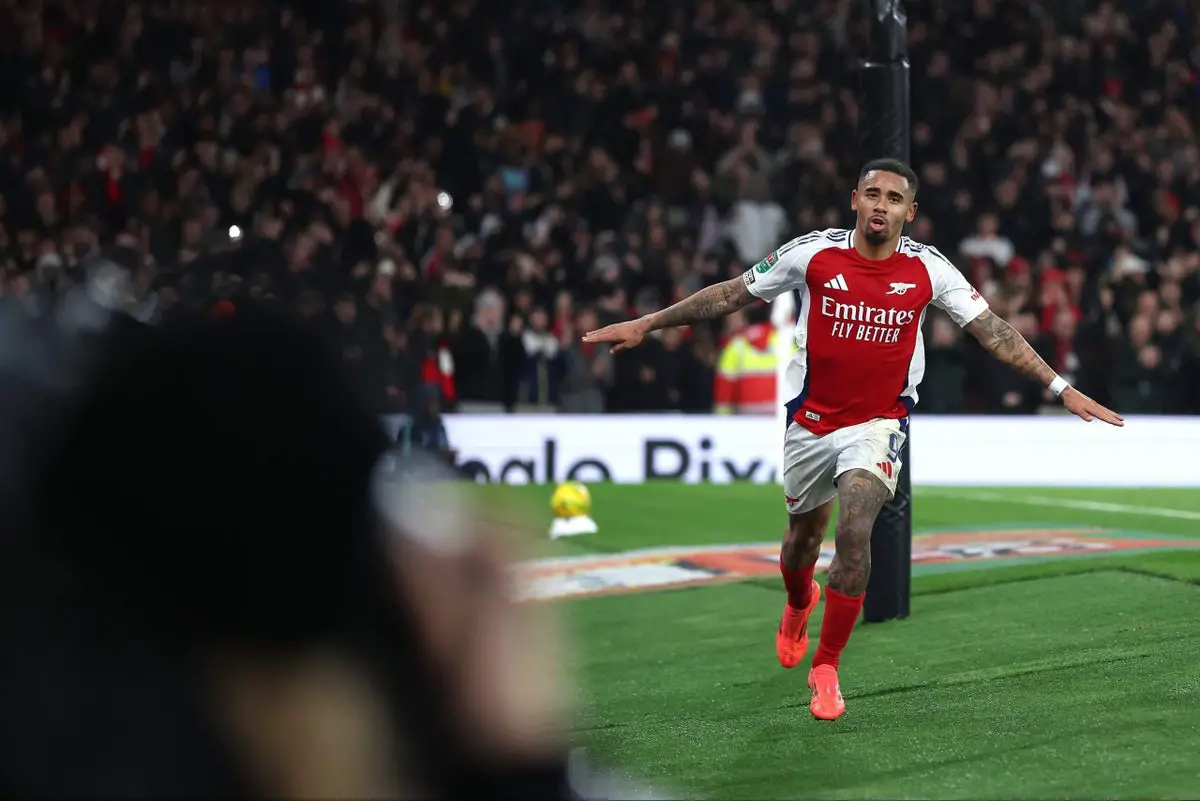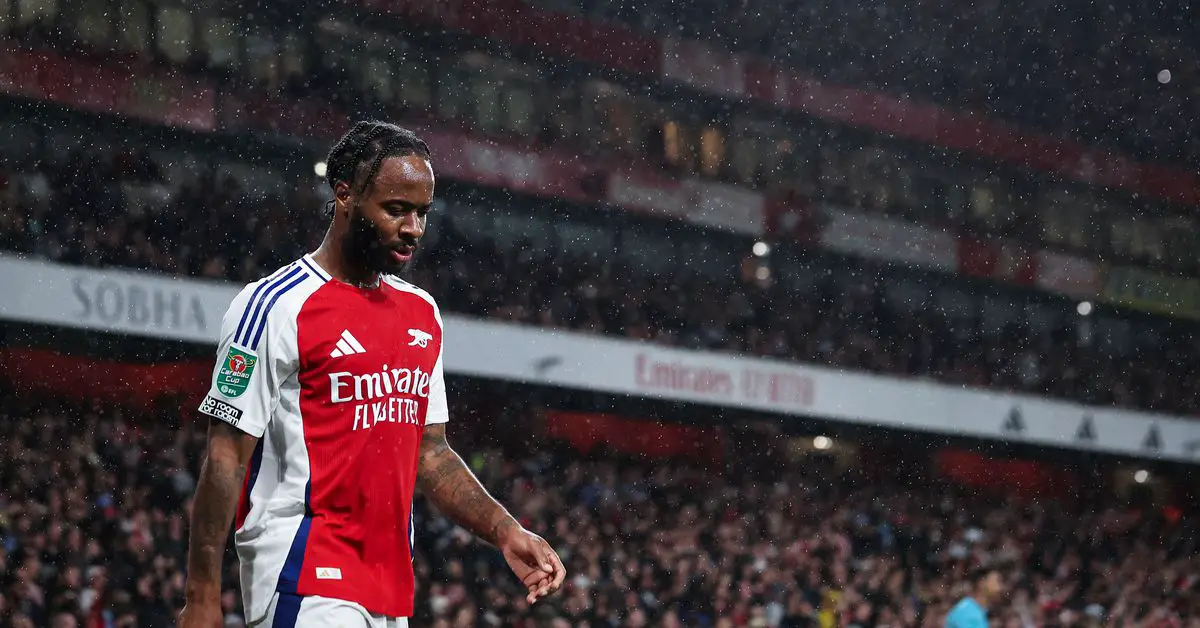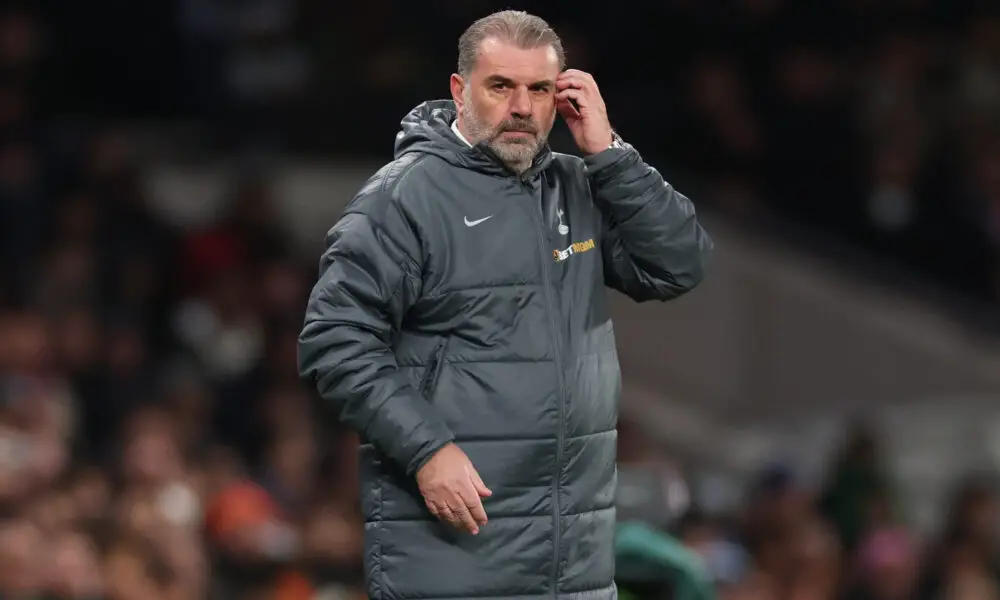A year and one day after his last competitive Emirates goal, Gabriel Jesus put Mikel Arteta’s words about the Carabao Cup into action.
His second-half hat-trick completed a 3-2 quarter-final win over Crystal Palace, just over 12 months after his strike in a 2-0 win over Brighton.
“It creates something different around the team and that is why these kinds of games are so important,” the Arsenal manager said in his pre-match press conference. “It keeps everyone on their toes and everyone is willing to play those games and those competitions and if you can win it is momentum and belief.”
Arsenal needed a boost after two successive Premier League draws against Fulham and Everton. Not only were the results disappointing, but the performances lacked real urgency and threat, despite their high possession figures. The first half against Palace followed the same pattern. Jakub Kiwior’s failure to deal with Jean-Phillipe Mateta was an indicator of how the half would play out. But a flip was switched in the second half and Jesus was the main representation of that.
“I’m so pleased for him,” Arteta said in his post-match press conference. “It’s been a long period without goals. The three types of goals he scored, and the many actions he was involved in… he looked very sharp.
“It’s a great thing for him and the team that we can rely on a player of such quality. He has a quality, a way of creating and innovating situations, that is unique. Gabi at that level is a big asset for us.”
That imaginative way of creating situations was transformational when Jesus arrived at Arsenal in 2022. Within minutes of his debut, coincidentally away to Crystal Palace, it was clear that he had raised the level of Arteta’s frontline. That Friday evening, he picked up the ball on the halfway line and jinked past multiple challenges before laying it off for a Gabriel Martinelli shot. Those mazy runs became a feature of his play that would help Arsenal unlock teams. They would be more than welcome in the coming weeks.
Jesus scores against Palace (Alex Pantling/Getty Images)
Jesus showed glimpses of that movement to claim an assist against Monaco, but Arteta highlighting the different types of goals he scored against Crystal Palace is important. The first was a clever dink over Dean Henderson, the second was struck cleanly across the goalkeeper, and Jesus then sent him the wrong way after running half the length of the pitch for the third. All three goals came from a similar angle, but applying a different finishing touch to each almost showed Jesus’ confidence growing in real time.
Arteta seemed to have felt that, telling Sky Sports: “The movement, the quality of his touches, the way he finished the actions, it’s a big, big thing for him and the team. It is a big message for the team that we have got Gabi back at his best.”
Jesus told Sky Sports: “Sometimes I have this problem with (a) lack of goals but I can score goals. I can make assists, help the team defending, help with runs in behind. When I score everyone sees. When I don’t, they want their striker to score goals and I agree with that. That’s why I’m working a lot in training (on) finishing more, putting myself in good positions to finish actions. Today my hard work paid off.”
Arsenal have lacked runs in behind recently. Their play became predictable too often against Fulham, Monaco and Everton, with the ball recycled back and forth in wide areas.
A couple of tweaks helped facilitate better movement and spacing when Arsenal attacked in the second half. The first was Kieran Tierney’s presence at left-back. In his pre-Monaco press conference, Arteta said he would play to the Scot’s overlapping strengths rather than asking him to ‘invert’ like he did two seasons ago. That freedom helped Arsenal launch their first attack of the game when Mikel Merino found Tierney arriving into the final third.
In the second half, Leandro Trossard tucked infield to give Tierney more space to exploit. Within minutes, the left-back was found rampaging forward again, delivering a low cross that Raheem Sterling should have finished. This created a different dynamic in the Arsenal attack, spreading the Palace back line and creating more space for Martin Odegaard, who came on at half-time, to play an excellent reverse ball for Jesus’ equaliser.

Arteta spoke about the importance of the Carabao Cup (Glyn Kirk/AFP via Getty Images)
Compared to the first half, when the centre of the pitch was full of yellow Palace shirts, these changes allowed Arsenal to be much more vertical with their play than they had been in recent weeks. Odegaard played more reversed passes into a more central Trossard throughout the half, and Bukayo Saka assisted Jesus’ second with a similar pass once he came on.
While Jesus can help relieve pressure on Kai Havertz, the whole squad need to carry forward the momentum of the second-half performance. This cannot be another night like Nottingham Forest away in January, when Jesus was the difference in a 2-1 win with a goal and assist but then failed to score again until October against Preston North End.
Arsenal will find out their Carabao Cup semi-final opponents after Manchester United and Tottenham Hotspur face off tonight (Thursday). Using this competition as a springboard could be as important now as in March, when the final takes place.
“It brings belief, trust, positive energy touching the cup,” Arteta, who won two Premier League titles, an FA Cup and the Carabao Cup twice at Manchester City, said pre-match. “Being in the semi-final and beating somebody in the final, it is that energy and it creates the right path to go and do something else. Particularly because of the timing and when the competition is played in this country, it gets that momentum going.”
(Top photo: Alex Pantling/Getty Images)




